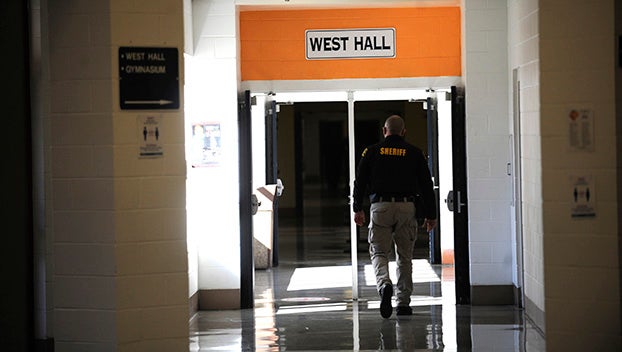SROs will be tough to replace
Published 2:51 pm Thursday, December 10, 2020

- Beaufort County Schools’ SROs could be leaving the school system in early 2021 if Sheriff Ernie Coleman proceeds with his plan to terminate the memorandum of understanding between the Sheriff’s Office and BCS. (BRANDON TESTER | DAILY NEWS)
|
Getting your Trinity Audio player ready...
|
Our public schools could be just a few months away from losing their school resource officers.
Based on Superintendent Matthew Cheeseman’s comments at a school board meeting last month, we’ve deduced that Sheriff Ernie Coleman is all but locked in on his decision to terminate the memorandum of understanding between his office and Beaufort County Schools that provides the district with deputies who serve as SROs. Coleman emphasized to Cheeseman that the district should find another way to maintain school security and crime prevention beyond Feb. 1.
Yes, there are alternatives — perhaps bringing in a small security group, or working with Beaufort County Community College, which has its own police department. But one thing is certain: It will be difficult, if not impossible for any other group to measure up to the dedication, work ethic and authenticity that SROs bring to our schools on a daily basis.
The N.C. Department of Public Instruction defines an SRO as a certified law enforcement officer who provides coverage to one school or multiple schools. An SRO, according to the DPI, is trained to take on three main roles: law enforcement officer, law-related counselor and law-related education teacher.
Many who’ve been around SROs in any capacity — professionally, as a teacher or as a student — will tell you that definition hardly grazes the surface of what those officers actually do. Even the officers themselves have found that their roles involve much more than maintaining security, stopping crimes or instructing students on how to stay out of trouble.
Just ask Walt Zerniak, a recently retired SRO whose story is featured on the front page of our Dec. 9 print edition.
“There’s so many different aspects and so much more involved,” Zerniak said about how being an SRO compared with his initial presumptions about the job. “I thought I’d be going to a school to basically provide security-type services. A lot of people confuse school resource officers with security guards. We do have the power of arrest.
“It’s the daily mentoring part, the informal counseling and the relationships that you build,” he added. “And you really work hand-in-hand with the school administration on a lot of different things other than pure violations of the law.”
SROs are invaluable members of the Beaufort County Schools community, and we hope — for the sake of our students, staff members and families — that something can be done to keep them in our school buildings.
Regardless of whether or not that’s possible, Beaufort County’s SROs are well deserving of the praise they get for the difference they’ve made in Beaufort County students’ lives.




